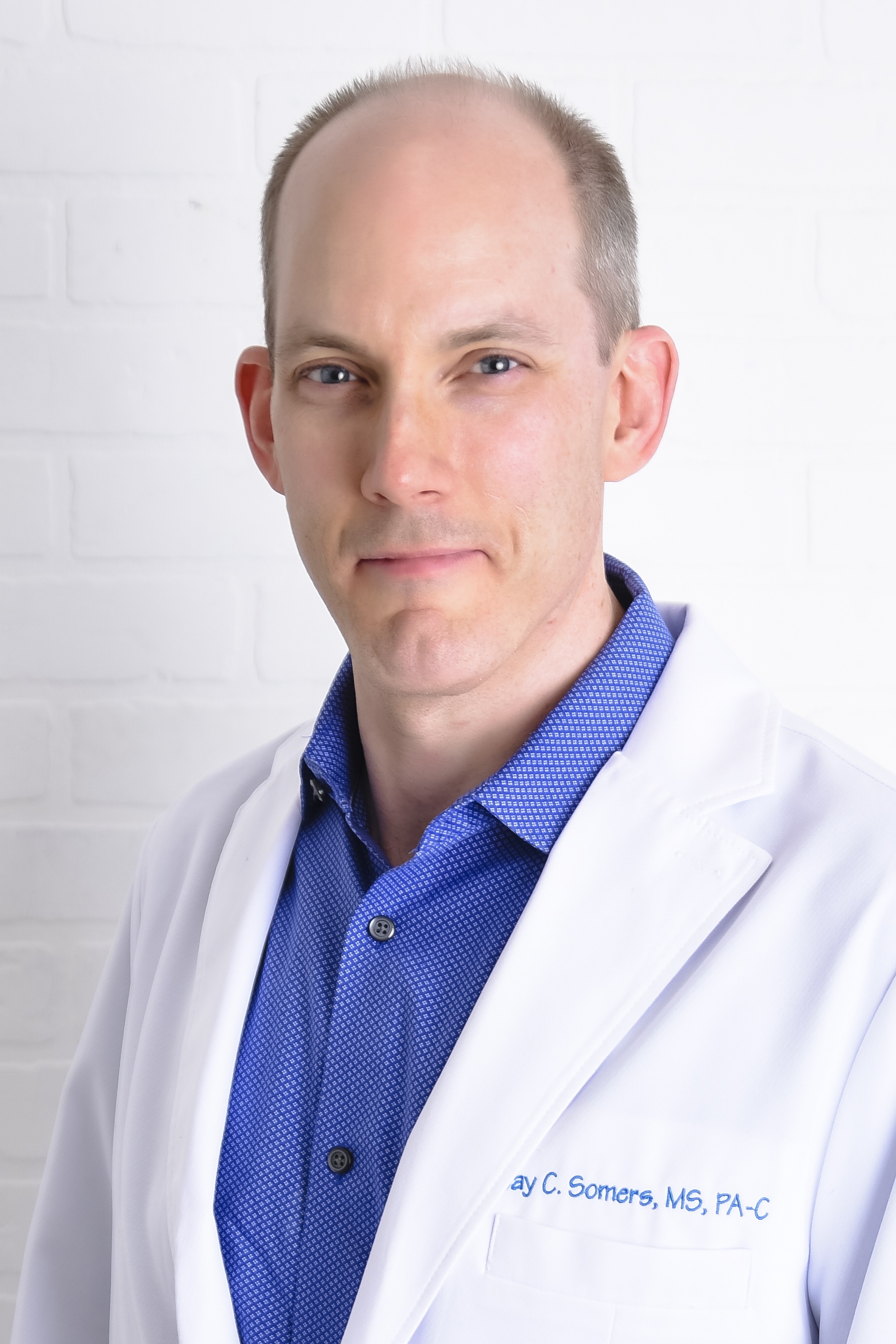Provider Burnout: Prioritizing Self-Care to Strengthen Patient Care
PA Foundation’s Vital Minds Podcast Tackles Healthcare Provider Burnout
 April 5, 2021
April 5, 2021
By Divya Williams
The PA Foundation, AAPA’s philanthropic arm, works to provide PAs and PA students with resources to promote better health and wellness. Since 2017, the Foundation has produced the Vital Minds podcast, which features conversations between host and early career PA James Millward and guest experts. As described by Millward, the series “connects the most vital issues in clinical care with the top minds facing them every day.”
In collaboration with the nccPA Health Foundation as part of the PArtners in Mental Health Initiative, the Foundation enlisted Nelae Keene, PA-C, and Jay Somers, PA-C, both PAs practicing in psychiatry, to explore a hot topic in healthcare in a recent Vital Minds episode: healthcare provider burnout. Data indicates that burnout among medical professionals could be as high as 60 percent, a number that doesn’t surprise Keene or Somers. Both PAs agree that even 60 percent is likely an underrepresentation of the true figure.

Burnout as a public health crisis
“I know [burnout] is on the rise. I can also see the effects on my colleagues and at times on myself,” Somers admits. “I think we all feel caught between the work to address our patients’ needs and the work we feel is mandatory in our environment.” Somers, who is currently in the Doctor of Health Science program at A.T. Still University, just completed a research project on the topic of burnout. “The rate of burnout is substantially increasing due to the administrative work that’s considered not satisfying and importantly not tied into meaningful connections with our patients,” he says.
The simple definition of burnout is the physical and mental collapse caused by overwork or stress. Research published in January 2019 by the Harvard TH Chan School of Public Health and other affiliate organizations labels healthcare provider burnout as a public health crisis. “This is because as medical professionals, the effects of burnout can have a ripple effect on our patients, meaning preventing and treating this issue is not just key to our own health but to the health of those we serve as well,” host Millward affirms.
Recognizing burnout
In a 2017 Harvard Business Review article “One Way to Prevent Clinical Burnout”, author Deirdre Mylod refers to two types of stress found in medicine: inherent and external. “External stress is 95 percent of what we talk about when we consider healthcare ‘burnout,’” Somers explains. This type of stress refers to financing healthcare, regulating healthcare quality, and addressing access to care. Says Somers: “These are, by in large, the issues that are beyond our personal ability to choose or control as high contact health providers, and provide the most discord between what we want, for our patients and us, and what we get, within the modern healthcare system.”
Inherent stress, on the other hand, is caused by the emotional, physical, and intellectual demands of caring for suffering patients. Keene notes that practicing medicine is difficult when providers are coping with struggles of their own: “It’s easy to be distracted and not fully present with your patients. You can lose touch with the empathy that drove you to medicine in the first place.”
Keene, who moved from a small town in Pennsylvania to Orange County, California, to begin her career as a PA, had her own experiences feeling alone, overwhelmed, and inadequate during her first two years practicing. “My second year, my boss got deployed to Iraq. I had a colleague that was my stand-in supervising physician but barely knew him and otherwise felt quite alone,” she shares. “The autonomy that I loved about being a PA was suddenly becoming a very scary burden.”

Proactively addressing burnout
Keene used a few strategies early in her career to help when she was in the process of burning out. She expressed her concerns to her employer, used her vacation days, and spent a few sessions with a psychologist. Strategies differ from person to person, and some of her colleagues found relief in yoga and meditation, group therapy, or journaling.
For PAs who are experiencing burnout, it’s important to remember that this is a serious issue worthy of time and attention. There are resources available to assist with stress management and self-care to best fit each individual. Both Keene and Somers stress the importance of practicing mindfulness and seeking help where and when you need it. As Somers reminds listeners, “love yourself [enough] to realize you’re not a machine.”
To hear more from these PA experts on healthcare provider burnout, listen to the full podcast episode here.
Editor’s note: This article originally appeared in May 2019.
Read More
PAs: It’s Time to Talk About Suicide
Take Time for Your Patients and Yourself
Tips for Caring for a Stressed-Out PA Spouse
The Balancing Act
Listen to Other Vital Minds Podcast Episodes
Thank you for reading AAPA’s News Central
You have 2 articles left this month. Create a free account to read more stories, or become a member for more access to exclusive benefits! Already have an account? Log in.



